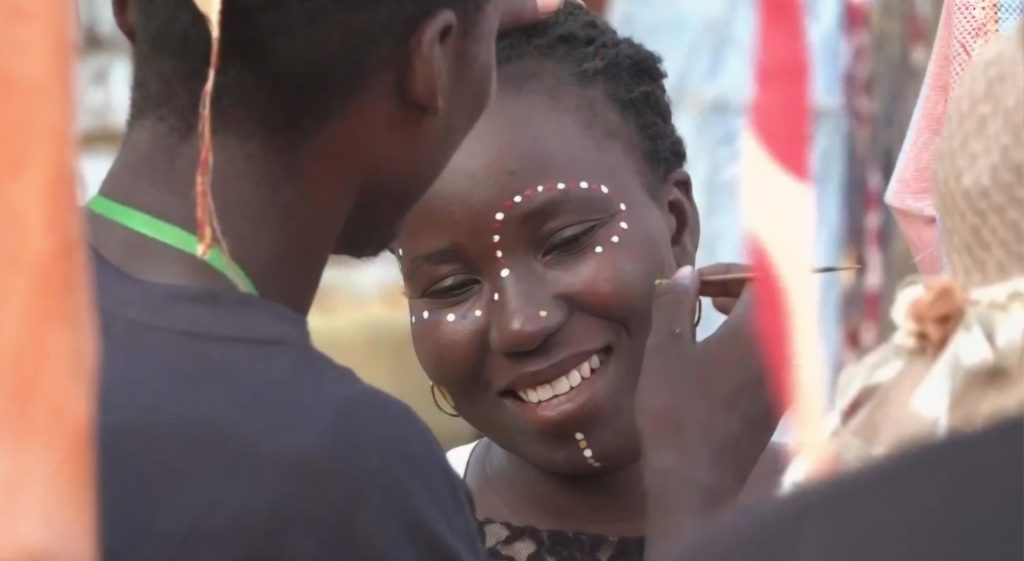A week-long theater festival in Burkina Faso’s capital, Ouagadougou, has provided a rare moment of escape and solidarity for those displaced by the escalating violence in the Sahel region. The Recreatrales festival, which drew over 4,500 theatergoers, showcased performances from more than 150 African and European artists. For many, the event became a beacon of hope, transforming the Bougsemtenga district into a lively cultural haven amid the country’s ongoing humanitarian crisis.
For many displaced Burkinabe participants, the festival was not just an artistic expression but also a therapeutic release from the harsh realities they face. One performer, a mother of three, shared how being on stage offered her a rare feeling of joy and peace. “When I’m on stage, I feel happiness,” she explained. “But when I return home, the memories of hardship flood back.” This contrast highlights the deep emotional toll of displacement, but also the temporary relief the festival provided to those living under extreme stress.
Burkina Faso, a landlocked country once celebrated for its vibrant arts scene, has increasingly been marred by violence in recent years. The country, which was known for its thriving film and theater festivals, now finds itself at the heart of the Sahel’s security crisis. Since a military coup in 2022, more than 60% of the country is now beyond government control. The violence, primarily stemming from jihadist insurgents, has displaced over 2 million people and left nearly 6.5 million in need of humanitarian assistance, further destabilizing the country.
Amid this growing crisis, festival organizers were resolute in their decision to continue the event. “Theater affirms the primacy of life over death,” said one of the festival’s key organizers. “It is a form of resistance—resistance to the violence, to the uncertainty, and to the adversity we face every day.” The festival’s theme, “Turning the face to the sun,” served as a poignant reminder of the enduring human spirit, focusing on the power of creativity and unity in times of struggle.
Held in Bougsemtenga, a working-class district with a rich artistic heritage, the festival brought together local and international performers, artists, and audiences. Known as the “happiness district,” Bougsemtenga has long been a center for theater and cultural engagement, even before the festival’s inception in 2002. The district’s residents have embraced the festival as an opportunity to express their resilience through the arts. Workshops in theater, dance, and writing are integral parts of the event, empowering young people and fostering a sense of community. One festival director highlighted the importance of these efforts: “Art is a powerful weapon to fight for more light, humanity, and love, especially during times of crisis.”
For many, the festival is also a path to personal reinvention. A 30-year-old local performer, who turned to theater after a debilitating injury prevented him from continuing his previous profession, expressed how the festival had transformed his life. “Theater saved me,” he said, reflecting on how his participation in the festival gave him a renewed sense of purpose. This year, he played a pivotal role in organizing the opening performance, working alongside displaced actors to bring the story to life. It was his first experience collaborating with individuals directly affected by extremist violence, marking a deeply personal connection to the festival’s themes of resilience and renewal.
For displaced individuals, the festival offers more than just an artistic outlet—it is an essential way to be seen and heard by a society that often marginalizes their voices. Theater has become a tool for these individuals to express their trauma, share their experiences, and connect with a wider audience. It provides them with an opportunity to reclaim their narrative in a country where many have been forced into the shadows.
Despite the challenges that continue to grip Burkina Faso, the Recreatrales festival stands as a powerful reminder of the nation’s enduring creativity and spirit. It offers a brief but much-needed reprieve from the ongoing crisis, proving that even in the face of extreme adversity, art remains a powerful force for healing, unity, and resistance.

